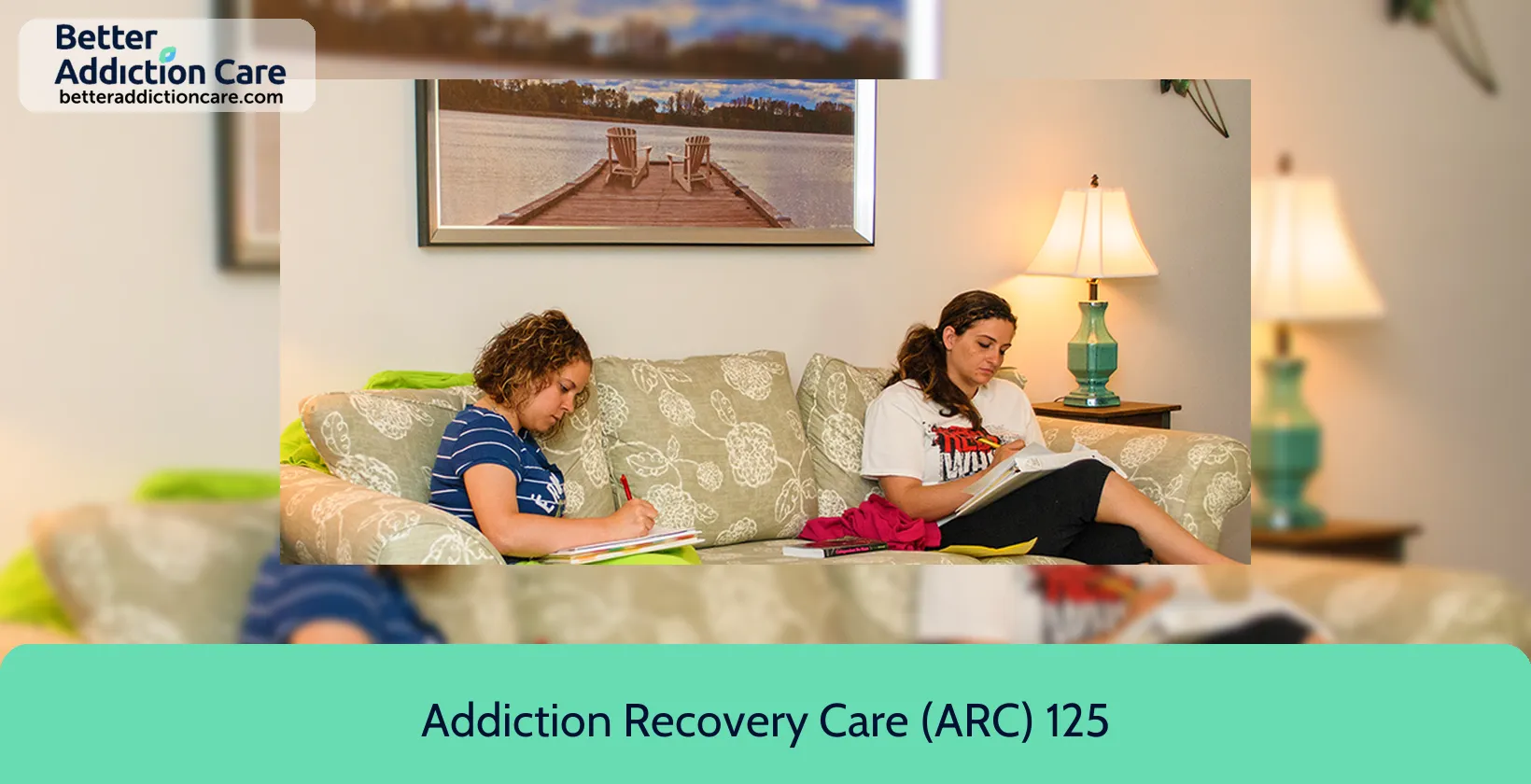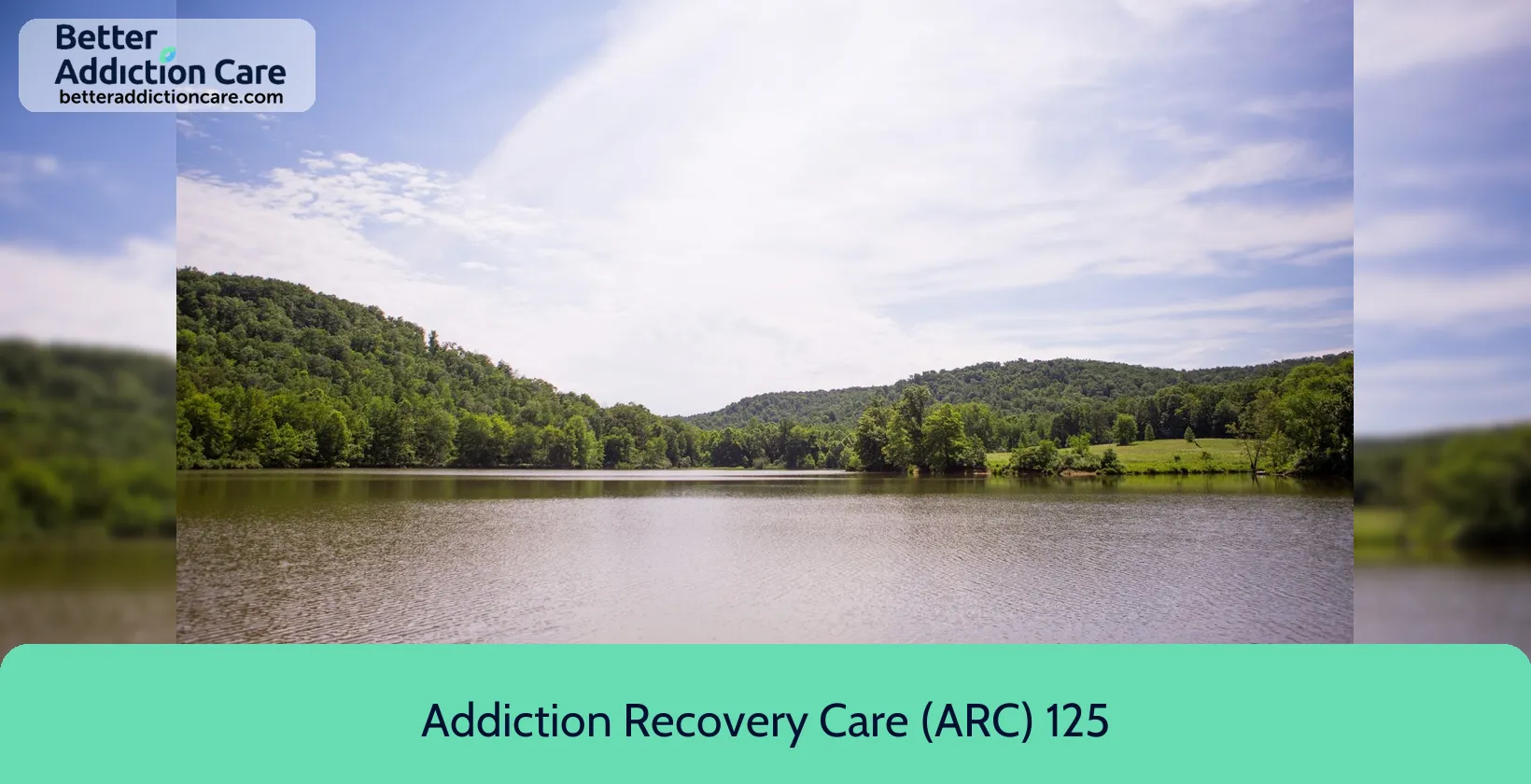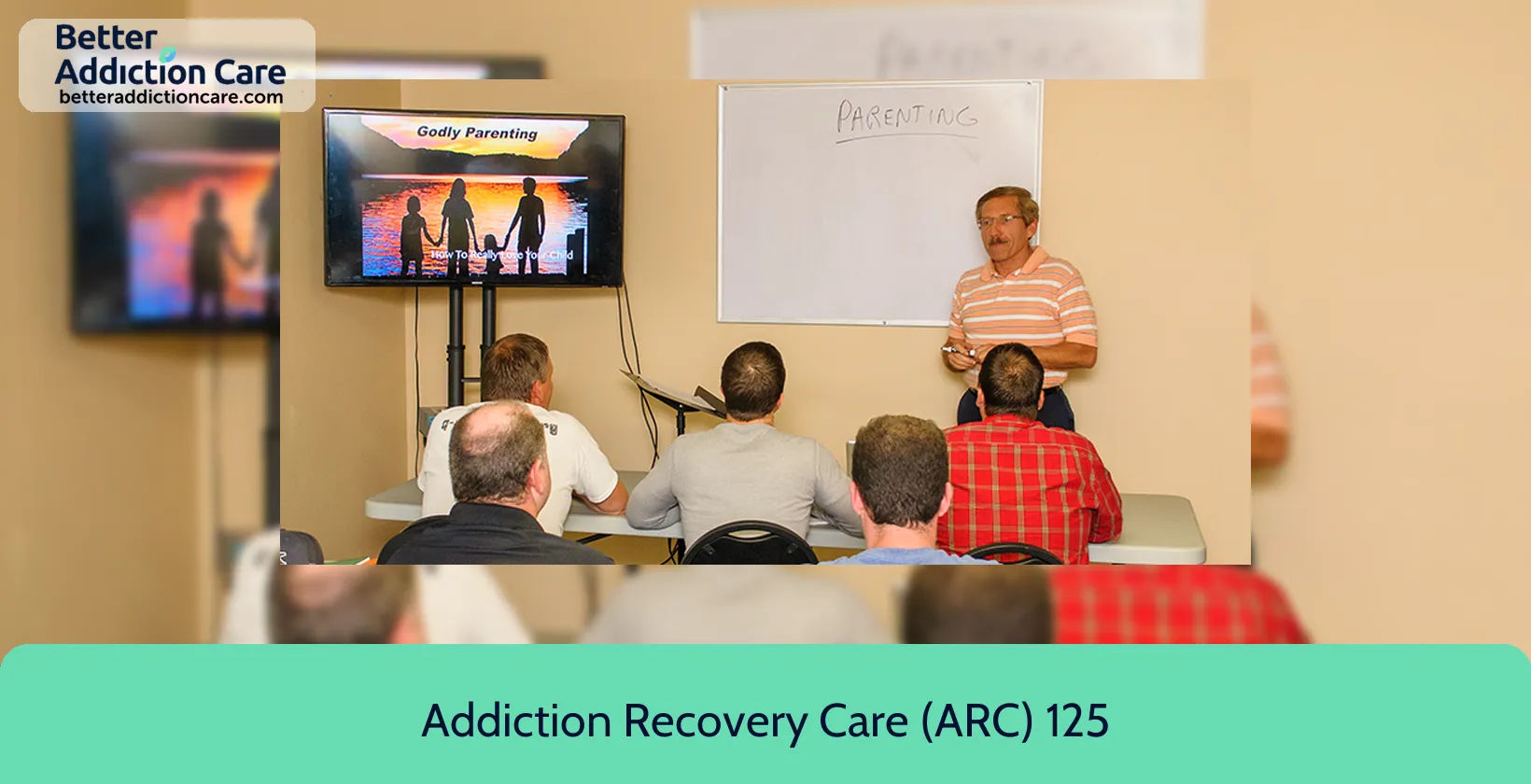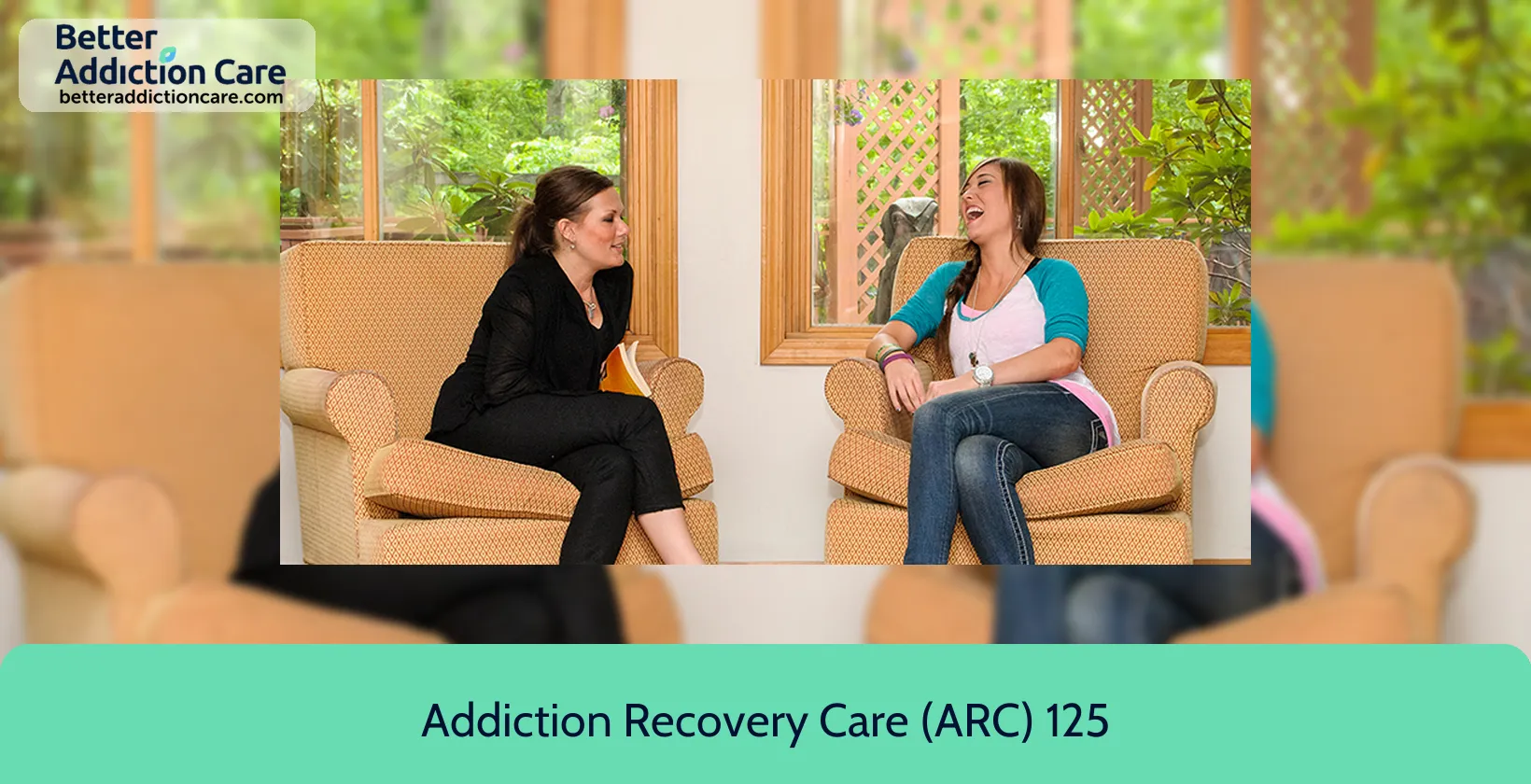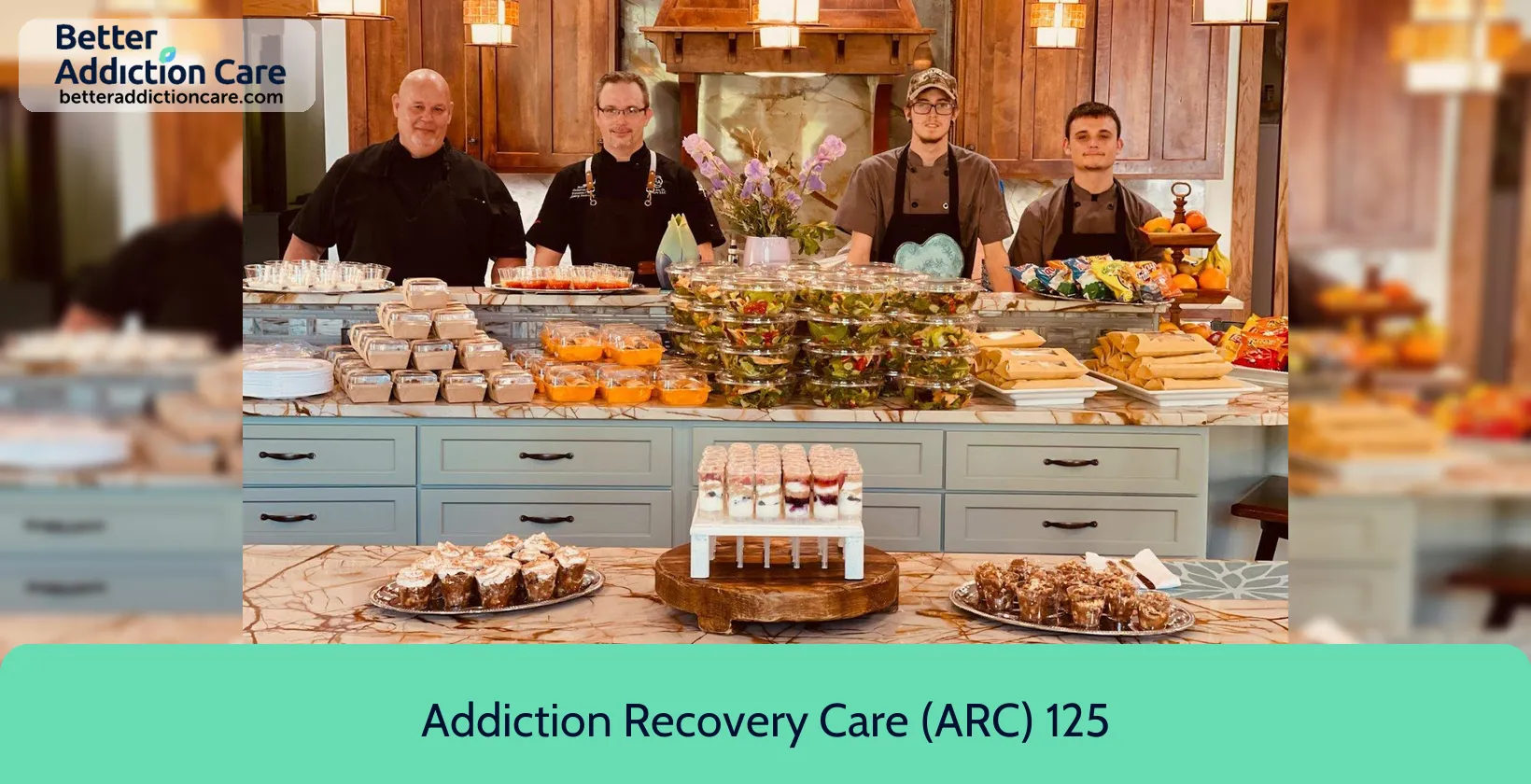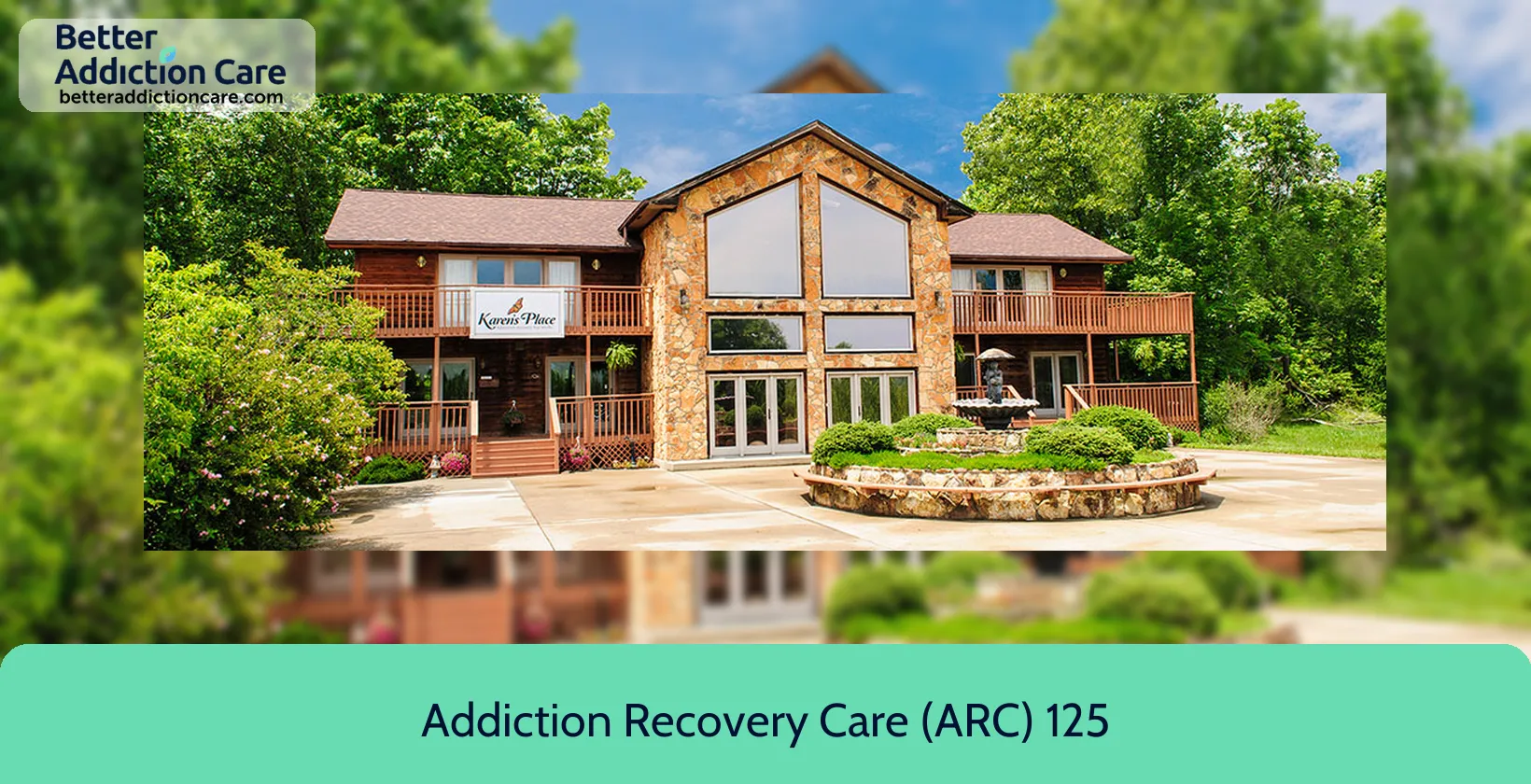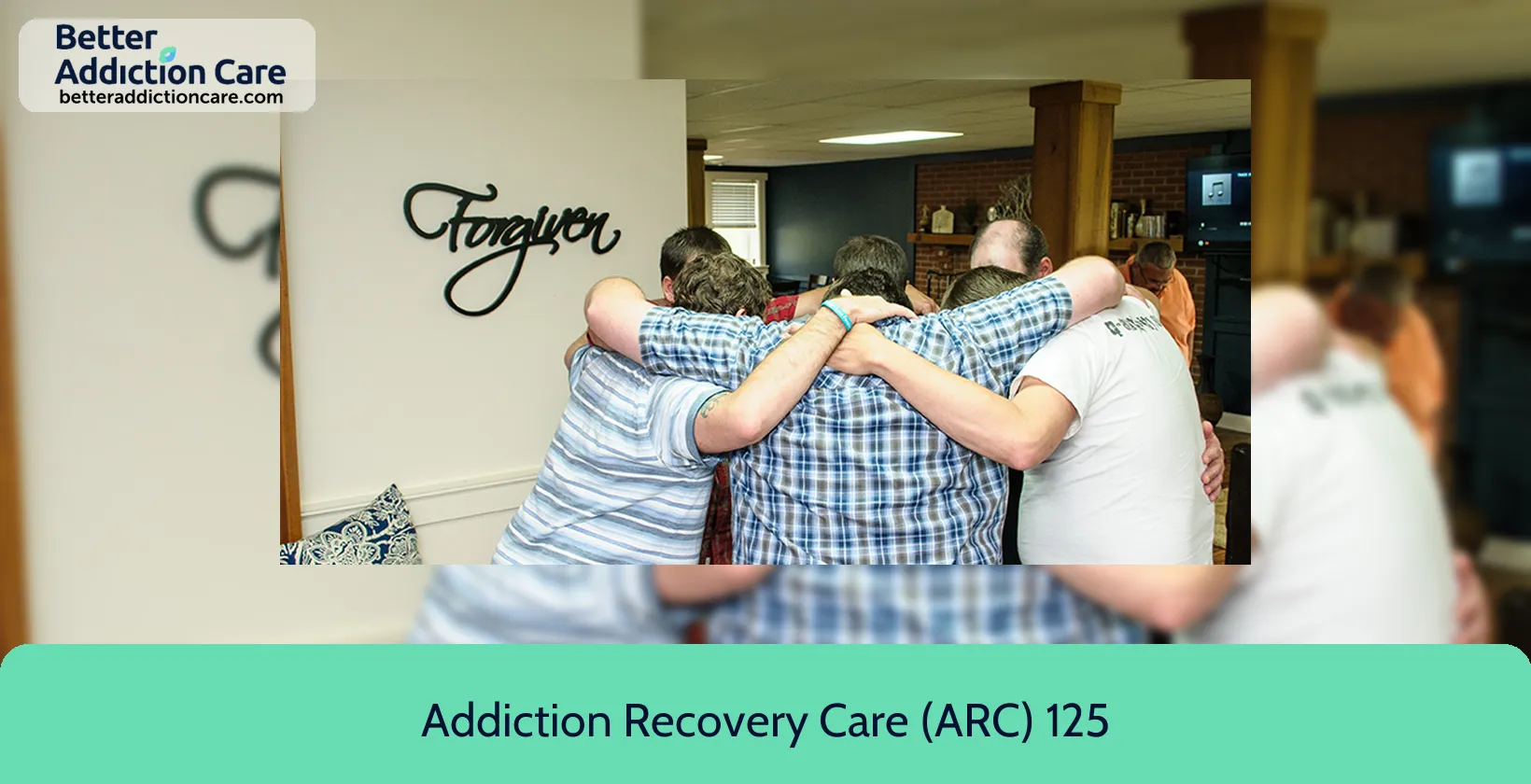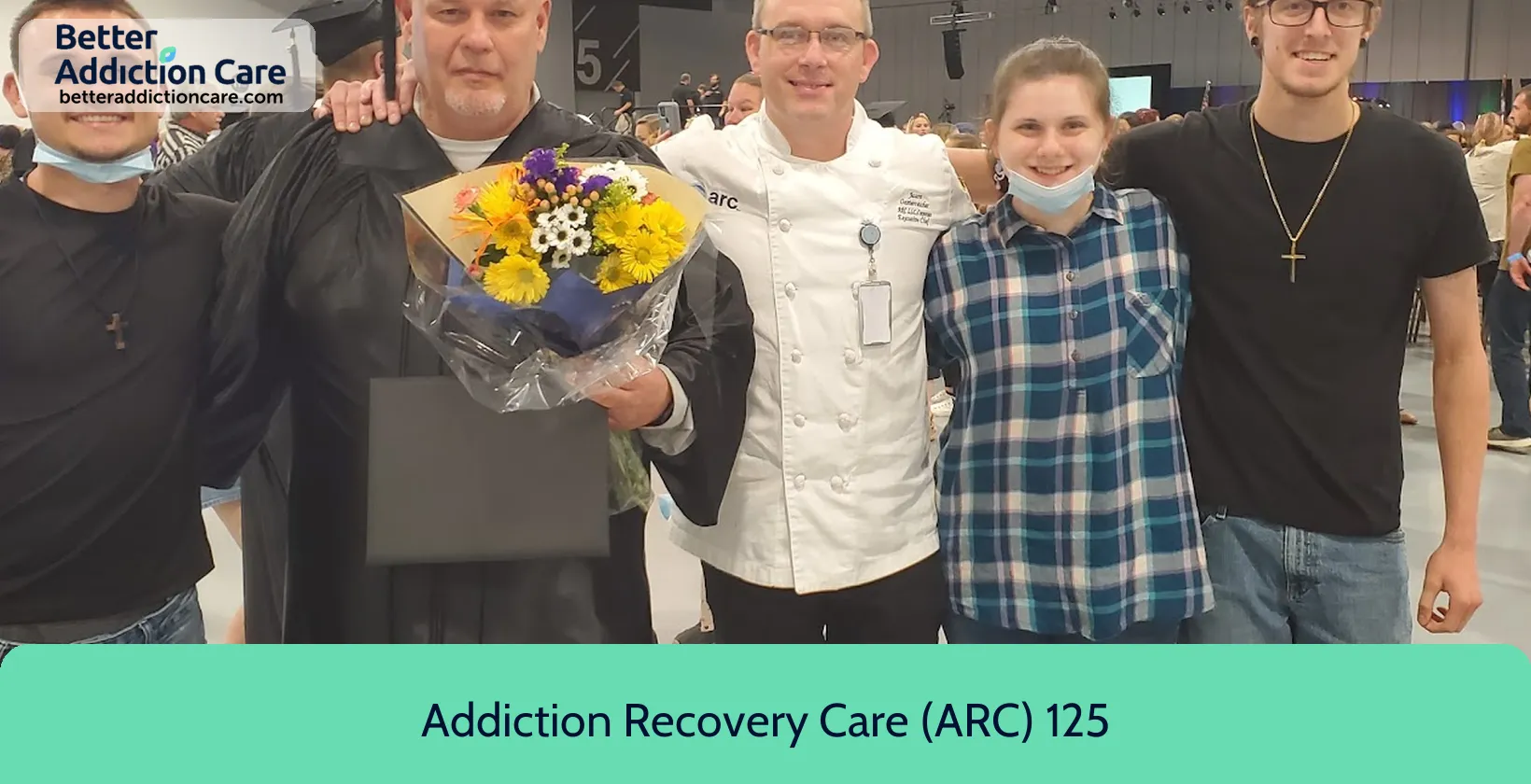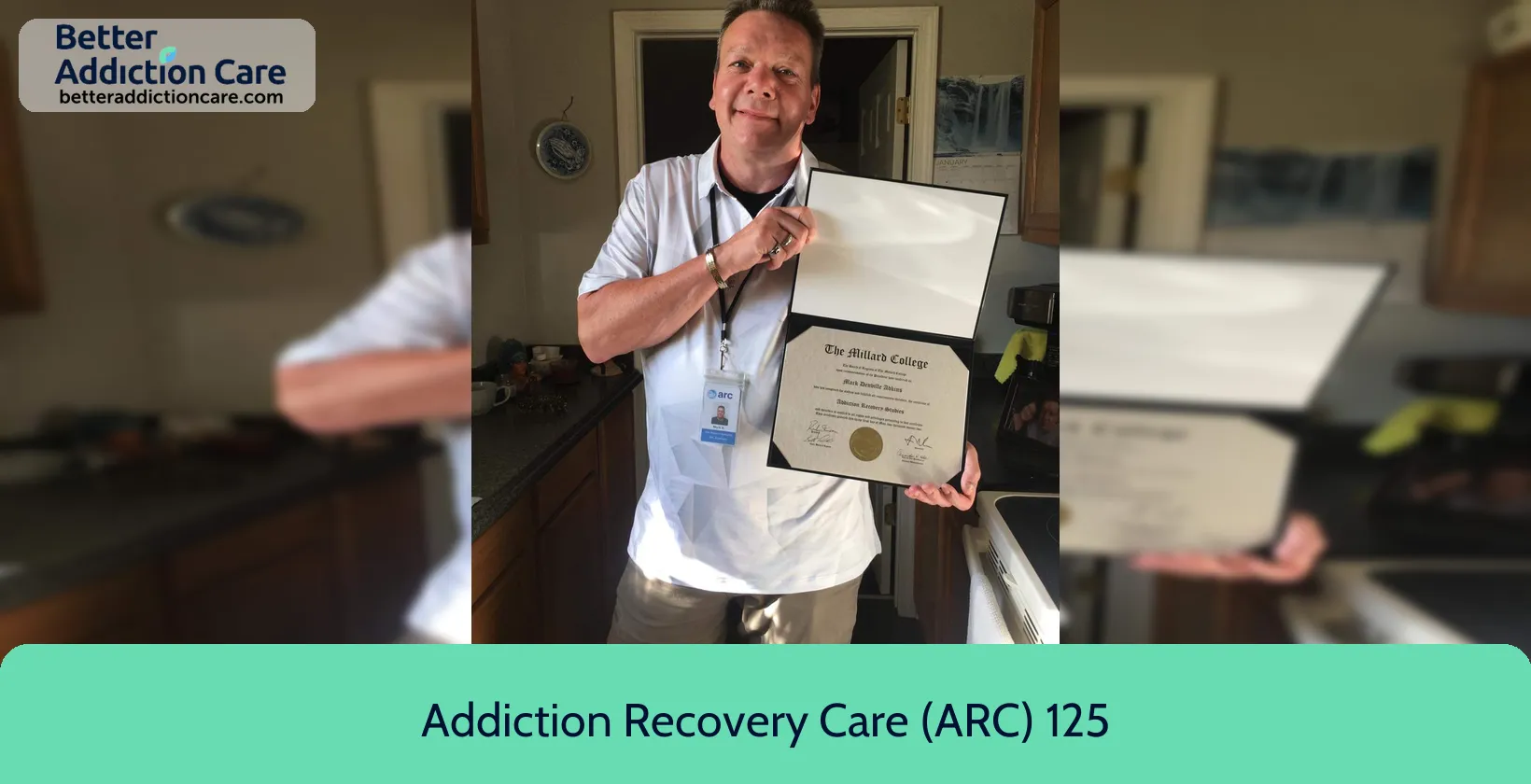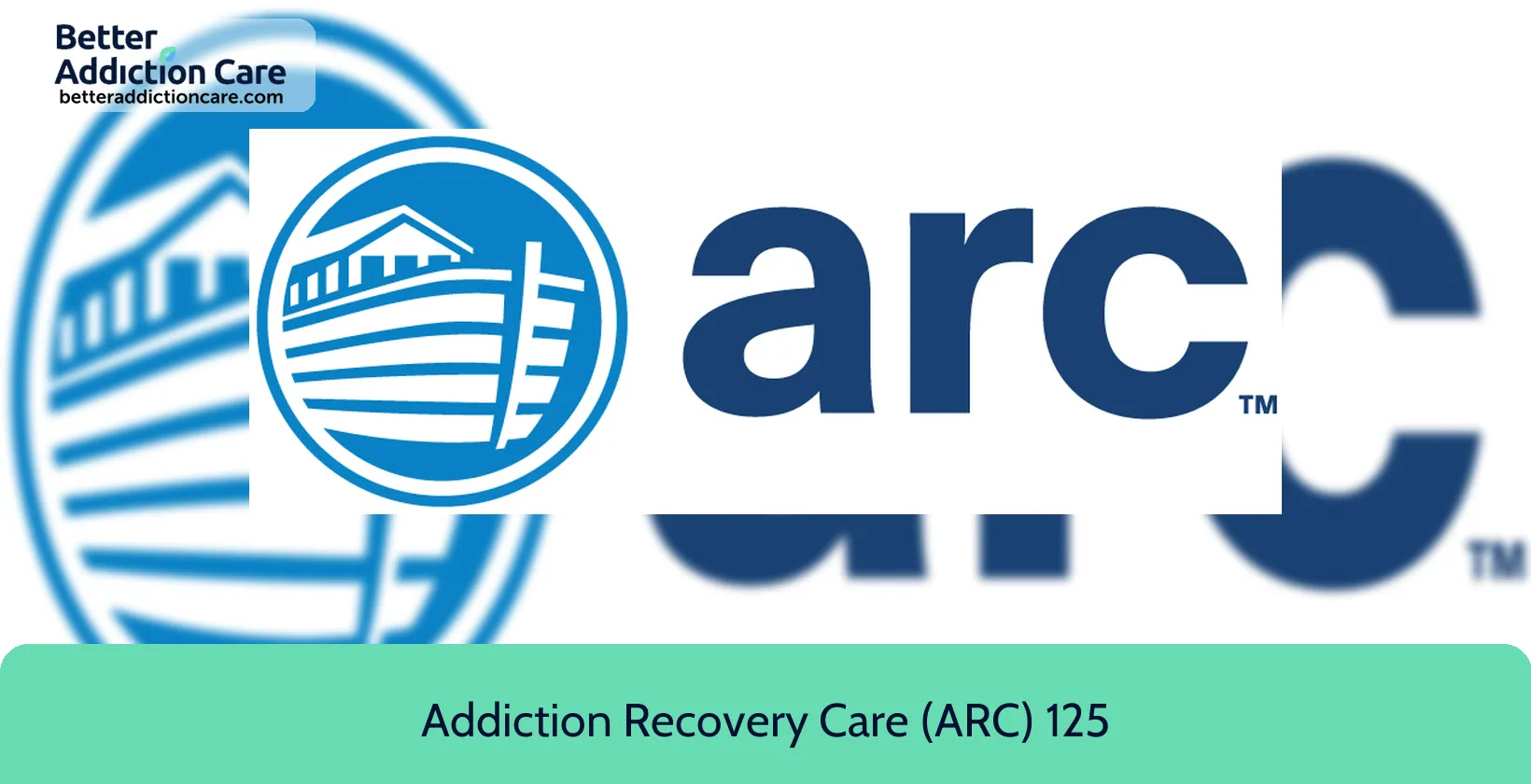Addiction Recovery Care (ARC) 125 South Main Cross Street
Overview
Addiction Recovery Care (ARC) 125 South Main Cross Street is a substance abuse treatment center for people seeking treatment near Lawrence County. As part of their treatment modalities for recovery, Addiction Recovery Care (ARC) 125 South Main Cross Street provides 12-step facilitation, group counseling, and individual psychotherapy during treatment. Addiction Recovery Care (ARC) 125 South Main Cross Street is located in Louisa, Kentucky, accepting cash or self-payment for treatment.
Addiction Recovery Care (ARC) 125 South Main Cross Street at a Glance
Payment Options
- Cash or self-payment
- Private health insurance
- Medicaid
- Monthly
- State-financed health insurance plan other than Medicaid
Assessments
- Comprehensive mental health assessment
- Comprehensive substance use assessment
- Outreach to persons in the community
- Screening for substance use
- Professional interventionist/educational consultant
Age Groups
- Adults
- Children/adolescents
- Young adults
- Seniors
Ancillary Services
- Case management service
- Integrated primary care services
- Suicide prevention services
- Early intervention for HIV
- Mental health services
Highlights About Addiction Recovery Care (ARC) 125 South Main Cross Street
7.94/10
With an overall rating of 7.94/10, this facility has following balanced range of services. Alcohol Rehabilitation: 8.03/10, Drug Rehab and Detox: 8.77/10, Insurance and Payments: 6.67/10, Treatment Options: 8.30/10.-
Drug Rehab and Detox 8.77
-
Treatment Options 8.30
-
Alcohol Rehabilitation 8.03
-
Insurance and Payments 6.67
Accreditations
Commission on Accreditation of Rehabilitation Facilities (CARF):

Established in 1966, the non-profit organization known as the Commission on Accreditation of Rehabilitation Facilities (CARF) has a dedicated focus on accrediting rehabilitation organizations. CARF's primary mission is to assist service providers, particularly rehabilitation facilities, in upholding and promoting the highest standards of care.
NAATP:

Established in 1978, the National Association of Addiction Treatment Providers (NAATP) is a professional organization dedicated to advocating for and representing entities involved in addiction services. NAATP is committed to advancing the field of addiction services and ensuring that top-tier addiction treatment remains both accessible and widely available.
State department of health:

Government agencies issue State Licenses, granting rehabilitation organizations permission to operate their businesses legally within specific geographic regions. The licenses needed for legal operation are typically determined by the type of rehabilitation program offered by a facility and its physical location.
SAMHSA certification for opioid treatment program (OTP):
Accreditation by the Substance Abuse and Mental Health Services Administration (SAMHSA) for Opioid Treatment Programs (OTPs) signifies that a program has met strict standards for providing high-quality care to individuals with opioid use disorders. It assures patients, families, and communities that the OTP follows evidence-based practices, employs qualified staff and maintains a safe and effective treatment environment. This accreditation reflects the program's commitment to addressing the opioid epidemic and promoting recovery.
Treatment At Addiction Recovery Care (ARC) 125 South Main Cross Street
Treatment Conditions
- Mental health treatment
- Alcoholism
- Opioid Addiction
- Substance use treatment
- Co-occurring Disorders
Care Levels
- Intensive outpatient treatment
- Detoxification
- Aftercare
- Outpatient
- Hospital inpatient treatment
Treatment Modalities
- 12-step facilitation
- Group counseling
- Individual psychotherapy
- Dialectical Behavior Therapy
- Trauma-related counseling
Ancillary Services
Languages
- Sign language services for the deaf and hard of hearing
Additional Services
- Pharmacotherapies administered during treatment
- Mentoring/peer support
- Drug or alcohol urine screening
Special Programs
- Clients who have experienced trauma

Additional Locations
Get Help Now
Common Questions About Addiction Recovery Care (ARC) 125 South Main Cross Street
Contact Information
Other Facilities in Louisa

7.46

7.46

7.46

7.46

7.46
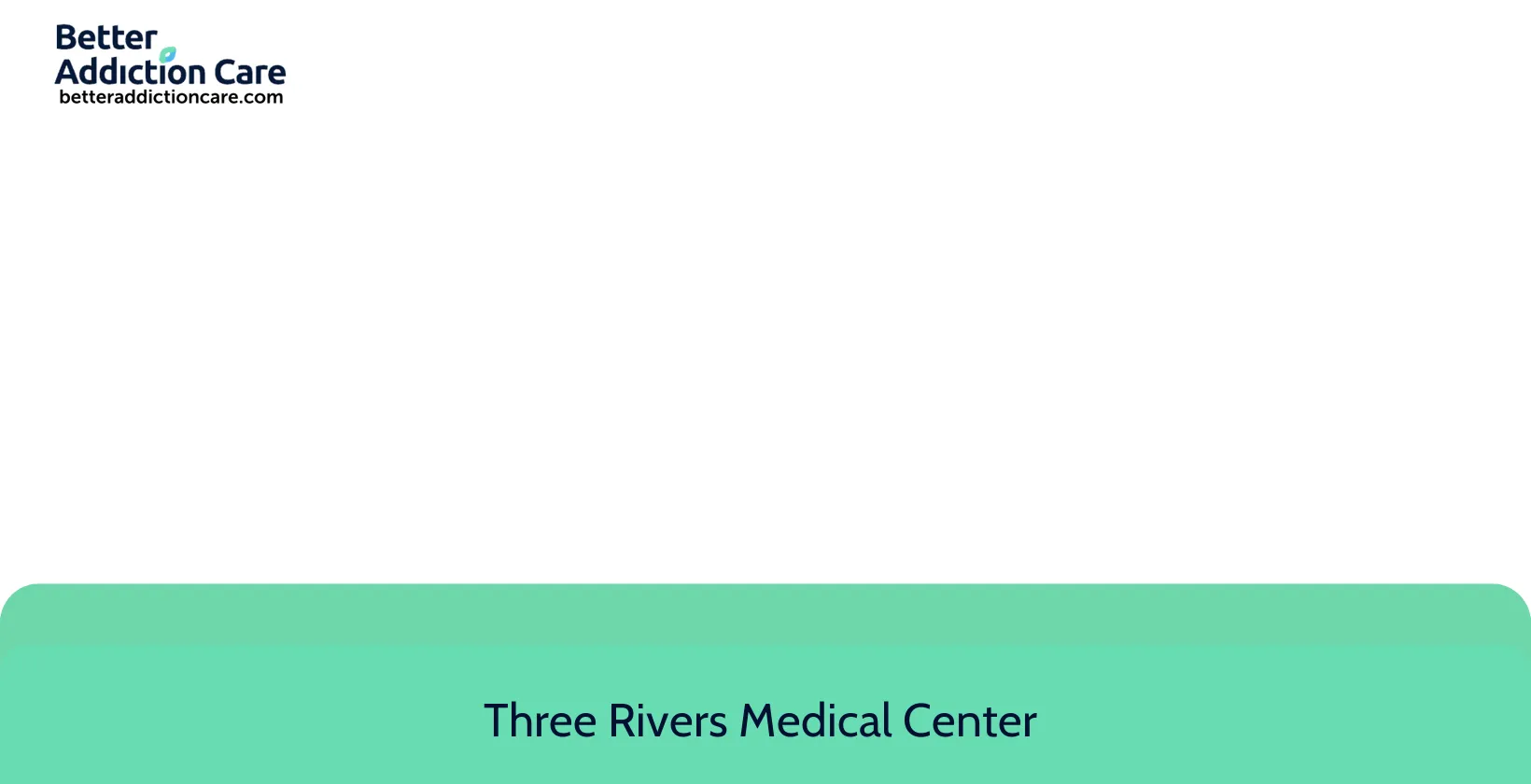
6.59
DISCLAIMER: The facility name, logo and brand are the property and registered trademarks of Three Rivers Medical Center - Mental Health, and are being used for identification and informational purposes only. Use of these names, logos and brands shall not imply endorsement. BetterAddictionCare.com is not affiliated with or sponsored by Three Rivers Medical Center - Mental Health.
